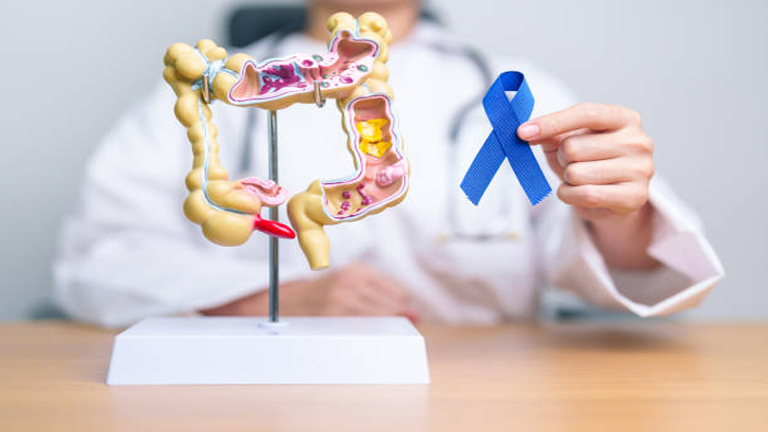Colon cancer, also known as colorectal cancer, is one of the most common cancers worldwide. Recognizing colon cancer symptoms early can significantly improve treatment outcomes and survival rates. This comprehensive guide will explore the key signs, risk factors, and preventive measures to help you stay informed and proactive about your health.
Must Check: Diarrhea Causes
Understanding Colon Cancer
Colon cancer develops in the large intestine (colon) or rectum, typically starting as benign polyps that turn malignant over time. Early detection is crucial because symptoms often appear only in advanced stages.
Who Is at Risk?
Certain factors increase the likelihood of developing colon cancer:
-
Age (50+ years, though cases in younger adults are rising)
-
Family history of colorectal cancer or polyps
-
Inflammatory bowel diseases (Crohn’s disease, ulcerative colitis)
-
Unhealthy diet (high in processed meats, low in fiber)
-
Sedentary lifestyle and obesity
-
Smoking and excessive alcohol consumption
Early Colon Cancer Symptoms
Many early-stage colon cancer cases show no symptoms, which is why regular screenings (like colonoscopies) are essential. However, some subtle signs may appear, including:
1. Changes in Bowel Habits
-
Persistent diarrhea or constipation
-
Narrow or pencil-thin stools (a possible sign of obstruction)
-
Feeling that the bowel doesn’t empty completely
2. Blood in Stool (Rectal Bleeding)
-
Bright red or dark, tarry stools (indicating bleeding in the digestive tract)
-
Blood may sometimes be invisible (occult blood), detectable only through a fecal test
3. Abdominal Discomfort
-
Frequent gas, bloating, cramps, or pain
-
A sensation of fullness even after not eating much
4. Unexplained Weight Loss and Fatigue
-
Sudden weight loss without diet or exercise changes
-
Chronic fatigue due to blood loss (leading to anemia)
Advanced Colon Cancer Symptoms
If cancer spreads (metastasizes), symptoms become more severe:
-
Severe abdominal pain
-
Jaundice (yellowing of skin/eyes) if cancer reaches the liver
-
Shortness of breath (if it spreads to the lungs)
-
Bone pain (in cases of bone metastasis)
Colon Cancer: Symptoms, Risk Factors, and Prevention
| Category | Details |
|---|---|
| Early Symptoms | – Changes in bowel habits (diarrhea, constipation) – Blood in stool (bright red or dark) – Abdominal pain, cramps, bloating – Unexplained weight loss – Fatigue (due to anemia) |
| Advanced Symptoms | – Severe abdominal pain – Jaundice (if cancer spreads to the liver) – Shortness of breath (lung metastasis) – Bone pain (if cancer reaches bones) |
| Risk Factors | – Age (50+) – Family history of colon cancer – Inflammatory bowel disease (Crohn’s, ulcerative colitis) – Low-fiber, high-processed-meat diet – Obesity & sedentary lifestyle – Smoking & heavy alcohol use |
| Screening Tests | – Colonoscopy (every 10 years after 45-50) – Fecal Immunochemical Test (FIT) (yearly) – Stool DNA Test (Cologuard) – CT Colonography (virtual colonoscopy) |
| Prevention Tips | – Eat high-fiber foods (fruits, veggies, whole grains) – Limit red/processed meats – Exercise regularly – Maintain a healthy weight – Avoid smoking & excessive alcohol – Get regular screenings |
When to See a Doctor
If you experience any of these symptoms for more than two weeks, consult a healthcare provider immediately. Early diagnosis through colonoscopy, CT scans, or biopsy can save lives.
Prevention and Early Detection
1. Regular Screenings
-
Colonoscopy (recommended every 10 years after age 45-50)
-
Fecal immunochemical test (FIT) annually
-
Stool DNA testing (like Cologuard)
2. Lifestyle Changes
-
Eat a high-fiber diet (fruits, vegetables, whole grains)
-
Limit red and processed meats
-
Exercise regularly
-
Avoid smoking and excessive alcohol
Conclusion
Recognizing colon cancer symptoms early can be life-saving. If you notice persistent changes in bowel habits, blood in stool, or unexplained weight loss, seek medical advice promptly. Regular screenings and a healthy lifestyle are your best defenses against this disease.
By staying informed and proactive, you can reduce your risk and improve early detection outcomes. Don’t ignore the warning signs—your health is worth it.

